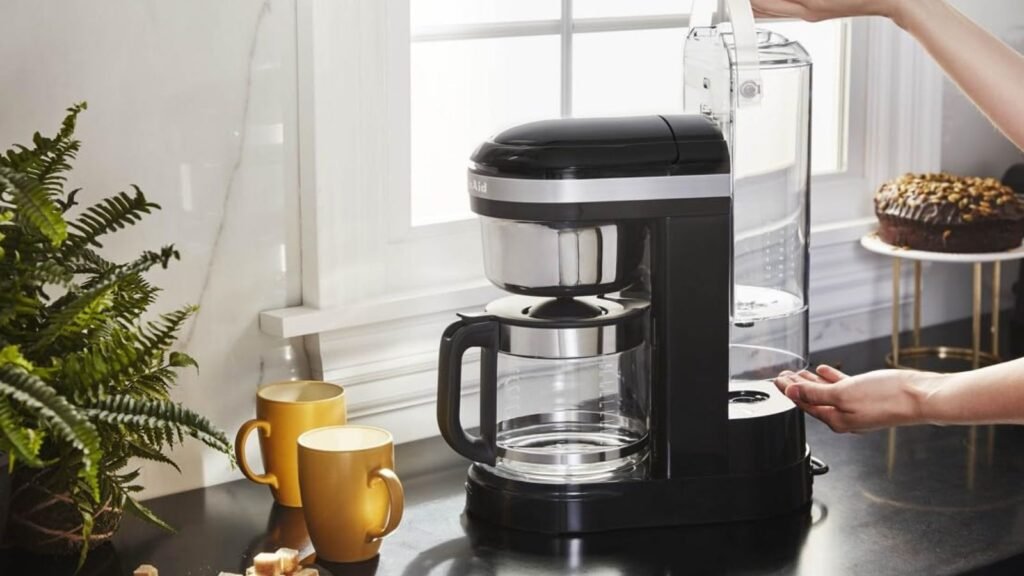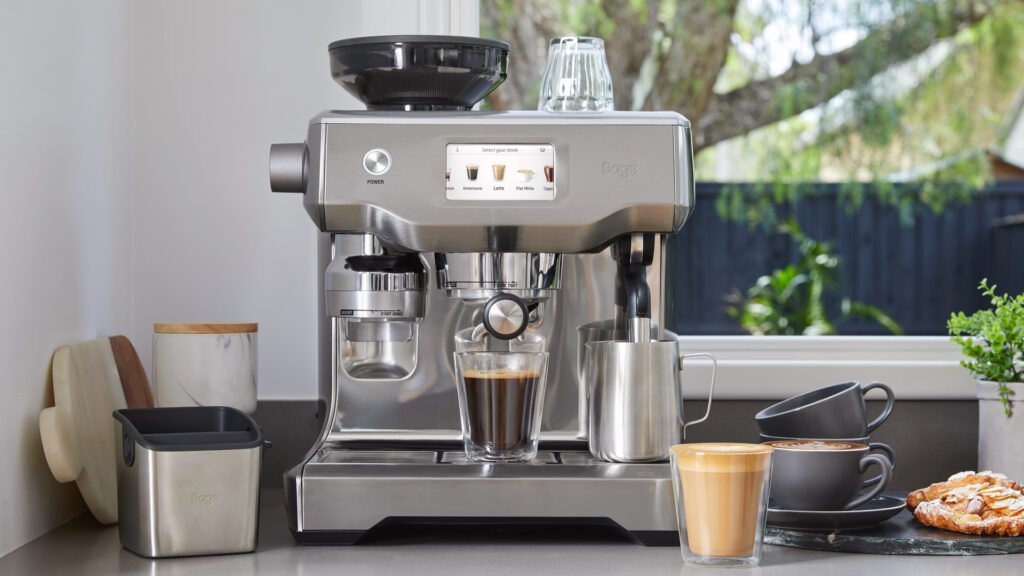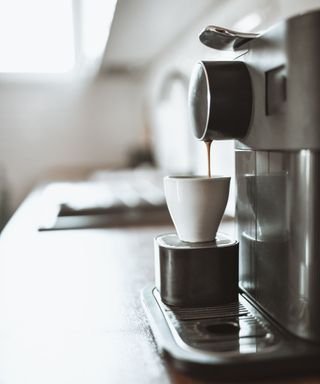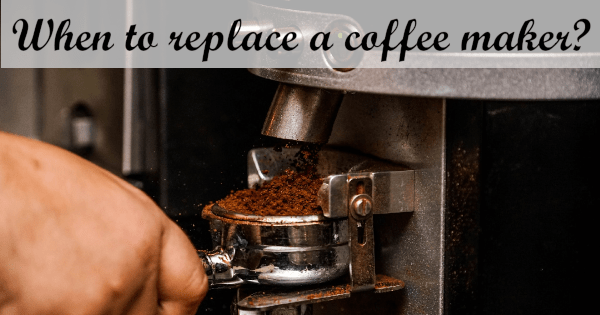How do you know you need a new coffee maker? You might love your current coffee maker, but sometimes, changes occur that indicate it may be time to upgrade. Understanding these signs can ensure you continue to enjoy the best possible coffee experience.
Why You Should Pay Attention
Sometimes, it’s easy to overlook the subtle hints your coffee maker is giving you. But paying attention to these signs can mean the difference between a lackluster cup of coffee and a perfectly brewed one. Plus, an old, malfunctioning coffee maker can lead to potential health hazards. Let’s explore the clear signs indicating that your coffee maker might need a retirement plan.
Longer Brewing Time
If your coffee maker takes longer to brew the same amount of coffee, it could be a sign of an internal problem. Over time, mineral deposits, especially calcium, can build up inside your machine, clogging the water flow.
What Causes it?
Mineral buildup from hard water and consistent use can interfere with your machine’s efficiency. Even regular cleaning might not fully remove these deposits over time.
| Potential Issue | Solution |
|---|---|
| Mineral buildup | Regular descaling |
| Outdated machine | Consider replacement with newer technologies |

Inconsistent Coffee Quality
Do you notice that your coffee doesn’t taste as good as it used to? It could be more than just old coffee beans. Inconsistent coffee quality is a major indicator that your coffee maker is struggling to perform its job.
Fluctuating Taste and Temperature
If your coffee tastes burnt, bitter, or even metallic, the heating element in your coffee maker might be failing. Uneven water distribution over the coffee grounds or an inconsistent temperature could also affect the taste.
| Issue | Possible Cause |
|---|---|
| Bitter taste | Insufficient grinding or extraction |
| Burnt or metallic taste | Malfunctioning heating element |
Leaks or Drips
Leaking water or coffee from your machine is a glaring red flag. Continual leaks can cause damage to the surface underneath and, needless to say, create a mess.
When Should You Worry?
A coffee maker that leaks can mean several things: a damaged water reservoir, loose connections, or worn-out internal seals. Though you might be able to patch it up for a bit, it often indicates the machine is nearing the end of its life.

Outdated Features
Technology in coffee makers has advanced significantly. If your machine lacks features such as programmable settings, brew strength options, or a timer, it might be time to consider an upgrade.
Modern Conveniences
Newer coffee makers come with a range of features designed to enhance your coffee experience. Some have built-in grinders, while others offer various brew sizes and strengths.
| Old Feature | Modern Equivalent |
|---|---|
| Manual timer | Programmable timer |
| Single strength | Multiple brew strengths |
| No grinder | Built-in grinder |
Unusual Noises
If your coffee maker starts making unusual sounds, it could be signaling that something internally is wrong. Grinding, gurgling, or screeching sounds are often the result of obstructions, worn-out parts, or poor internal mechanisms.
Common Types of Noises
| Noise Type | Potential Cause |
|---|---|
| Grinding | Faulty motor or clogged grinder |
| Gurgling | Blocked water lines or air trapped inside |
| Screeching | Worn-out internal components |

Repeated Power Issues
Does your machine often turn off randomly or fail to start? Power issues can be incredibly frustrating, especially if you rely on your coffee maker to kickstart your day.
What Could Be the Cause?
Power issues may result from a variety of problems, such as wiring issues or deteriorating electronic components. Continually dealing with these problems can be a strong indicator that your coffee maker is on its way out.
Excessive Steaming
Excessive steam escaping from your coffee maker indicates a problem either with the pressure system or a potentially dangerous malfunction.
Danger Signs
A malfunctioning pressure system can lead to steam build-up, which can be dangerous and lead to burns or even small explosions within the machine. If you notice this problem, immediate replacement is advisable for safety.

Poor Water Flow
A consistently slow water flow can ruin your coffee brewing process. If your machine can’t push water through at a good rate, the final cup can be weak and less flavorful.
Causes of Poor Water Flow
Poor water flow is often caused by blockages or a failing pump. Even after a thorough cleaning, if this problem persists, it might be time to look for a new coffee maker.
| Problem | Indicator |
|---|---|
| Blocked water line | Slow brewing time |
| Failing pump | Weak coffee brew |
Low Temperature
The ideal brewing temperature for coffee is between 195 to 205 degrees Fahrenheit. If your coffee isn’t brewing at this temperature, it may not extract the coffee’s full flavor profile.
Measuring Brewing Temperature
You can measure the temperature of the water just after brewing begins using a food-safe thermometer. If it’s off, your coffee maker’s heating element could be faulty.

Poor Brewing Consistency
If your coffee maker brews too much or too little coffee inconsistently, you might be facing other issues. Inconsistent brewing volume can ruin your coffee experience.
What to Look For?
If you set your machine to brew a certain amount and it regularly overflows or underperforms, it might be time to consider an upgrade.
Frequent Repairs
If you find yourself repairing your coffee maker frequently, it might be more economical to purchase a new one. Continuous repairs can end up costing more in the long run.
Cost-Benefit Analysis
Consider the accumulated cost of repairs versus the price of a new, more efficient coffee maker. Often, the latter offers more benefits and longevity.
Health Benefits of Upgrading
Old coffee makers can harbor bacteria, mold, and yeast, even with regular cleaning. Upgrading ensures you can take advantage of the latest technology designed to keep your machine cleaner for longer.
Better Cleaning Mechanisms
Many new coffee makers come equipped with self-cleaning functions and better filtration systems, ensuring that your coffee is safer to consume.
| Old Machine | New Machine |
|---|---|
| Regular cleaning required | Self-cleaning capabilities |
| Basic filtration | Advanced filtration systems |
Environmentally Friendly Options
Newer models often come with eco-friendly options. Energy-efficient coffee makers help reduce your carbon footprint.
Sustainable Choices
Some modern machines have features like auto-shutoff, reusable filters, and are made of eco-friendly materials. These features not only save energy but also reduce waste.
Final Thoughts
Understanding the signs that you need a new coffee maker can greatly enhance your coffee experience. From better taste to improved health benefits, making the switch to a newer model can offer countless advantages. While sentimental value might make you hesitant to part with your old machine, the perks of upgrading are well worth considering. So, keep an eye out for these tell-tale signs, and enjoy every sip of your coffee to the fullest.
